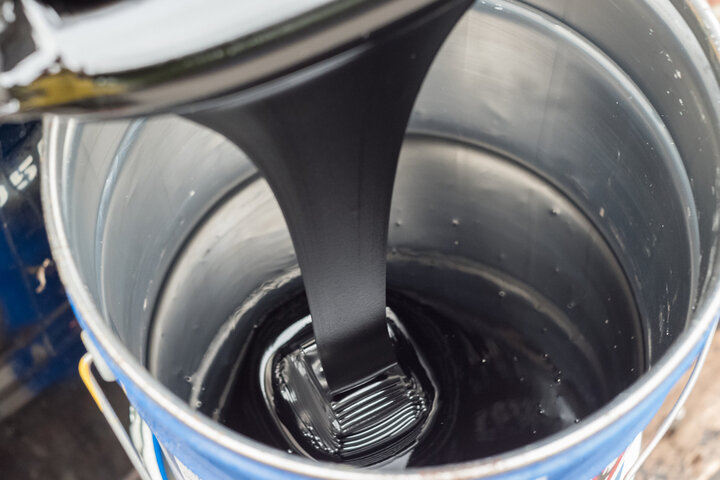Increasing Demand for Viscosity Grade Bitumen in India

Viscosity grades of bitumen have played a strong role in Indian bitumen market, in recent years. Over 60 percent of road projects in the country use various grades of VG bitumen, including VG-10, VG-40 and more than other grades VG-30.
VG grades are known by the Indian government as the preferred type of bitumen for road construction. In 1991, the Bureau of Indian Standards adopted a new grading method for bitumen, named viscosity grading, to offer a better control over the performance of the bituminous mix. Since then, bitumen manufacturers started to produce and supply viscosity grades of bitumen.
In comparison to the widely used penetration method for grading bitumen, the viscosity grading system is highly focused on the field performance of bitumen in India. In this method of grading bitumen, viscosity is measured at 60 °C and 135 °C, which identify the properties of bitumen at both low and high temperatures.
Based on the VG bitumen’s FAQ published by IOCL, the largest Indian refiner, “The pavement made from VG Bitumen will have better performance, because viscosity value measured at 60 °C correlates well with rutting behavior and viscosity value at 135 °C gives sufficient idea about the mixing and compaction temperature”. Accordingly, the pavement constructed with viscosity grade bitumen has more durability and is resistant to rutting in hot weather and fatigue cracking in cold winters.

The use of viscosity grades of bitumen conforms to IS -73-2006, the Indian standard for paving bitumen specification. The standard was developed by using American standard ASTM D 3381 which classifies bitumen into four grades of AC bitumen, AC-10, AC-20, AC-30, and AC-40. AC grading system had an excellent performance in south eastern parts of the United States, which have a hot climate and heavy rainfall similar to India. The Indian standard of IS -73-2006 introduces four VG grades including VG-10 Bitumen, VG-20 Bitumen, VG-30 Bitumen, and VG-40 Bitumen.
The applications of viscosity grades of bitumen
Each grade of VG bitumen has various properties that make it suitable for specific applications. The higher the number, the harder the bitumen in the viscosity grading system.
| Viscosity Grade |
Suitable for 7 day average maximum temperature in °C |
| VG-10 |
Less than 30 |
| VG-20 |
30-37 |
| VG-30 |
38-45 |
| VG-40 |
More than 45 |
According to product description published by Infinity Galaxy, supplier of bitumen in India, VG-10 bitumen is the softest grade of viscosity bitumen. This type of bitumen is widely used in snow bound cold climate. Due to its low viscosity, VG-10 is also suitable for spraying applications and surface coating.
VG-30 is the most widely used grade of bitumen in India. This grade is primarily used for the construction of extra-heavy bitumen pavements that bear significant traffic loads. VG-30 is also used in hot climate areas, because of its resistance to higher temperatures. Since this grade of bitumen is proved to have a high performance in Indian road projects, it is the preferred grade for sellers and buyers of VG bitumen. Read more about VG 30 bitumen.
VG-40 bitumen is used in areas in which high pressure comes from heavy traffic loads, such as intersections, near tolls booths, and truck parking lots. Due to the high viscosity of this bitumen, it is more appropriate for improving resistance to shoving and other problems associated with higher temperatures and heavy traffic loads.
VG bitumen price and quality
In the production of viscosity grades of bitumen, a high-quality vacuum bottom (Raw material for producing bitumen) is used. As a consequence, the final product is always of good quality.
In addition, the technical expertise that is needed for production of VG bitumen is only available in some countries. From more than 40 refineries in the Middle East, only 10 of them have enough expertise to produce VG bitumen. Therefore, the price of viscosity grades of bitumen is a bit higher than other grades of bitumen.
VG bitumen, demand and supply in India
With the introduction of viscosity graded bitumen in India, many refineries moved to the production of VG bitumen, to meet the demand of Indian road projects. For instance, the state-owned Indian Oil Corp. Ltd. (IOC) increased the capacity of Barauni refinery in 2016, to produce 150,000 tpy of VG-30, VG-40, and VG-10.
Although Indian refineries are now capable of producing various grades of VG bitumen, the consumption of these grades outpaced the rates of production in the county recently. This means that India will be dependent on VG bitumen imports, due to the increased infrastructure spending and expanding road networks across India.

Aimed at upgrading the road network, Indian bitumen market is estimated to be around 5 million tonnes. In September 2020, India's bitumen consumption has been 444,000t.
India has the world’s second largest road network after the United States of America, with a road infrastructure of over 47,000 km. Next to 90 % of India’s bitumen demand is provided with national refineries, while the remaining 10 % is imported, mainly from the UAE and Iran.
Based on import statistics in 2016, India’s import of VG bitumen valued at 44 million Dollar from 01-Jan to 26-Nov. During this period, Iran and United Arab Emirates were the main supplier of VG bitumen to India, succeeding with Malaysia, and Singapore.
Among exporters of bitumen to India, Iran and UAE produce the best quality of viscosity grade bitumen in their refineries. With an access to premium quality crude oil and reach sources of vacuum bottom, these countries are the pioneers of Asian bitumen market.
Comments